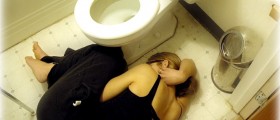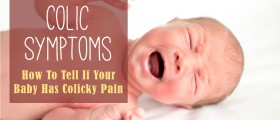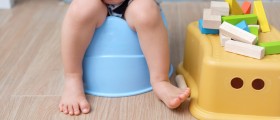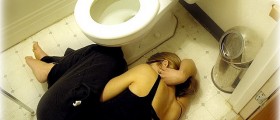
Just like with adults, severe cases of infant diarrhea can lead to dehydration. This can be a stressful situation for child as well as for the parents. It is absolutely necessary take the child goes to the doctors in order to receive intravenous fluids. It is important to know that, in some cases, babies may become lactose intolerant. In these cases, avoiding milk or breastfeeding is advisable during diarrhea, but a pediatrician should be consulted first.
The baby needs to be fed with fluids such as pedialyte, for as long as the diarrhea lasts. Diarrhea appears as loose and watery stools, which happen more than three times during one day. There are many possible reasons for infant diarrhea such as teeth growing, antibiotics and gastrointestinal infections. Infant diarrhea usually goes away by itself, but it can also lead to dehydration and this can happen very quickly. Stomach flu (viral gastroenteritis) is often the cause of infant diarrhea. It can be caused by astrovirus, adenovirus, rotavirus and a number of others. The pediatrician needs to be contacted immediately if a baby under 3-4 months has diarrhea, if the diarrhea lasts for more than three days, if the stools are filled with pus or blood, if there is fever and vomiting, or if there was no urine for over six hours (suggesting dehydration).
This is a very serious problem, so it is very important to pay attention to any of the signs of dehydration: there are less wet diapers than usually or no wet diapers for 4-5 hours, high fever, crying with few or no tears, sunken cheeks, eyes and abdomen, the baby is thirsty, infant is less active, fatigue, dry mouth, skin and tongue.
There are many possible causes of infant diarrhea.
Bacterial infections can be caused by a number of bacteria that entered organism usually through contaminated water or food. The most common are Campylobacter, Salmonella and Escherichia coli (E.coli).
The most common viruses that can cause diarrhea are rotavirus, Cyptomegalovirus and Herpes simplex virus. Rotavirus is the most usual cause of diarrhea.
Parasites can be introduced into the organism through contaminated water or food. Diarrhea can be caused by Entamoeba histolytica, Cryptosporidium, or Giardia lamblia.
Infant diarrhea can be caused as a reaction to medicines. Irritable bowel syndrome can cause infant diarrhea as well.
Intestinal diseases (such as Crohn's disease, celiac disease or inflammatory bowel) can also lead to diarrhea.
Growing teeth can also cause diarrhea.
It is vital to give baby lots of fluids, in order to prevent dehydration.
It is also important to consult a pediatrician in case there are any doubts, or before giving any medications to the child.


_f_280x120.jpg)














Your thoughts on this
Loading...